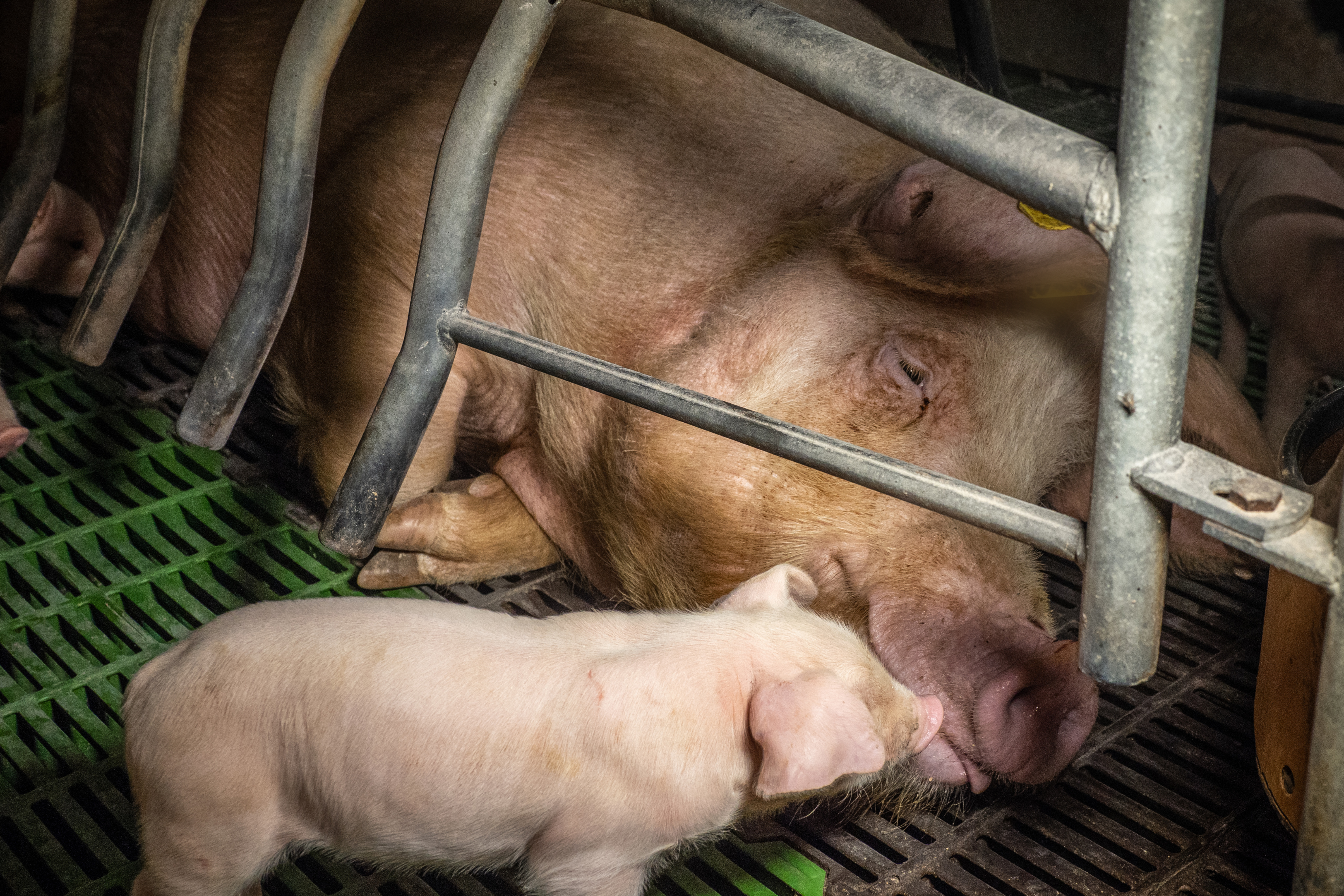How and why Bolton's teachers are buying food for hungry kids
As cost-of-living becomes more deeply ingrained in our vocabulary, teachers are forced to go above and beyond to ensure kids can learn effectively
Food poverty and the cost-of-living crisis means that teachers in Bolton are having to step in to feed hungry kids themselves
Poverty and inflation are not new topics in our conversations but that they reoccur shouldn’t make the reality any less hard to stomach. They continue to take hold and touch every part of our lives. For some it can mean that childcare is squeezed, jobs are more scarce or that rental increases are a worry. It can even stretch its fingers into the basics - the food we eat, or warm homes.
Parents feeding children, or trying to find the best way to make a meal for three work for five, making swaps to supermarket own brands and hoping the cost savings will add up and even just trying to make sure the family doesn’t go hungry. In some cases, it can mean skipping a meal with breakfast often the first to disappear.
The result of this is parents and children alike go hungrily about their daily routine, and this can be having a huge effect.
Teachers and schools step in to offer breakfast solutions such as free breakfast clubs or even just having snacks and extra food available. Some schools offer food bank style packages, signpost others to food banks and food schemes.
And in some cases teachers will step in to buy food themselves to support their pupils.
“I don’t resent having food and fruit in my classroom for children or paying for it myself. It’s just a matter of fact, times are hard."
In Bolton teachers have been helping by using their own money for food to feed their classroom, and the teachers in Bolton are not alone either.
A survey by FareShare last year found that one in four teachers in England were bringing in food for hungry pupils out of concern for their welfare. More than a third (35%) of the 9,000 teachers who took part in the poll said their school regularly provided food for children and their families, rising to almost half in the most deprived areas of England.
For lots of people, but for teachers especially, breakfast is seen as the most important meal of the day with the effects of a full stomach meaning learning and education improves. In a bid to curb growling stomachs or waning attention spans due to hunger, some teachers have been paying out of their own pocket to ensure pupils don’t go hungry and can give it their all.
Many schools in Bolton have introduced free breakfast clubs, which do mean pupils can access a balanced breakfast before class. Smithills School is one example where last year it launched a scheme that gives each student a bagel, a choice of cereal and a hot chocolate. Last year, Sixth Form Bolton also fed students by helping during the current cost of living crisis by providing a free breakfast.
One Bolton secondary school teacher in Little Lever, speaking to The Bolton Lead, said the impact has been felt most for those working towards exams and qualifications and that it’s needed for older children especially.
She said, asking to speak anonymously: “I have students that are studying ten GCSEs and feeling pressure to get good grades and go on to college or to take vocational routes such as apprenticeships. Some of these students are working towards multiple exams, and trying to get them in shape to pass and exceed can be difficult enough without the fact that they’re hungry or that they’re stressed over their family worrying about money.
“I have students who are very conscious of their household budget or income, and they want to be able to contribute or support. One student told me she doesn’t eat much at home because then her younger siblings get more, but my worry is that without enough food she can’t focus properly or be able to function at her best and this is an important year for her.”
It isn’t just those sitting GCSE’s or thinking or A-levels and university that are being affected. Key stage one and key stage two, children aged 4-11, are in need of support too.
Another teacher, who works in a Harwood primary school with young children, told The Bolton Lead: “I have children in my class that will have breakfast cereals as dinner [evening meal]. It’s not judging them or their families, it’s just the way things are and this is how those families are coping and making ends meet.
“I don’t resent having food and fruit in my classroom for children or paying for it myself. It’s just a matter of fact, times are hard and pinching us all and if it’s helping them then I don’t think I’ll stop doing it.”
She added: “I do wish there were better initiatives as there seems to be such a disparity in what schools get across the country. I used to work in Devon before this and the area I taught in was quite affluent so it was a very different landscape and I do think there should be a much better level of support for all children regardless of where they live.
“I don’t teach ‘poor kids’. I just teach children that deserve to be taught and I don’t think their education should be affected by their circumstances. We all function better with a full stomach and teaching kids that aren’t hungry is easier than trying to make those with growling bellies pay attention.”
"Some of these students are working towards multiple exams, and trying to get them in shape to pass and exceed can be difficult enough without the fact that they’re hungry or that they’re stressed over their family worrying about money."
Teachers might see it as ‘chipping in’ or doing what they can to help, but as a long term solution it isn’t viable and shouldn’t be their responsibility. Teachers are already pushing for better pay and support, so spending parts of their wages on food for pupils can’t continue indefinitely. The Department for Education initiative called the National School Breakfast Programme (NSBP) does offer some support whereby it will pay 75 percent of breakfast club foods at schools until July 2024.
But the plan for after that is still undecided and the current government would rather promise tax cuts than feeding kids. Not every school in the country can qualify, as criteria states that only schools in disadvantaged areas are eligible for the programme. To be considered eligible, they must have 40% or more pupils in bands A-F of the income deprivation affecting children index (IDACI).
In 2020, Bolton was considered to be one of the 20% most deprived districts/unitary authorities in England and it was estimated that about 20.1% (12,120) children live in low income families.
Last year it was still seen as a deprived area of Greater Manchester, coming in third alongside Tameside.
Geoff Barton, general secretary of the Association of School and College Leaders, previously told The Guardian: “The work that schools are doing, while hugely valuable, is not sustainable in the long term and is merely papering over the cracks of a deeply unequal society that it is incumbent on the government to fix.”
He isn’t the only one being vocal about needing more support from the government.
Mark Game, CEO of The Bread and Butter Thing with numerous bases across the North West, told The Bolton Lead: “Food insecurity is a condition that people don’t always understand until they experience it. The physical symptoms alone are uncomfortable and distracting but couple this with the emotional stress of not knowing if you can afford to feed yourself and your family that will overwhelm you.”
He added: “Over half of our members tell us that they have £50 or less residual income per household to spend on food after paying housing and energy bills. Compare this to the cost of £127 per person simply to eat a healthy diet.
“Food insecurity is continuing to rise simply because everything is still far more expensive than it was just to get by. Low income families are running out of resources and support. Compared to 2022, we have seen over 75% more members telling us that they are borrowing more just to afford to live. They are buying food and energy with loans and credit cards with no plans or real ideas as to how to repay them.
“The office for national statistics asked the general public in an annual survey if they could afford a surprise bill of £800. 47% say they couldn’t. We knew that all of our members couldn’t afford such a bill so we toned it down and asked if they could afford £100. Over 80% of our members said they couldn’t. A third of them went on to say they can’t even afford a surprise bill of £20.
“To me, low income households that are stretched and struggling but hanging on by the skin of their teeth are largely ignored. Because they’re still coping right? Is it right to wait for them to fall into crisis or become destitute before we help? I don’t believe so. We work with low income households who have suffered the most impact from the cost of living crisis. Ask any economist and they’ll tell you “the ones with the least are impacted the most”. And it’s not hard to see why.”
Sign up for The Bolton Lead for free here.
- You can access Bolton Council's cost-of-living support assets here
The Lead is now on Substack.
Become a Member, and get our most groundbreaking content first. Become a Founder, and join the newsroom’s internal conversation - meet the writers, the editors and more.




